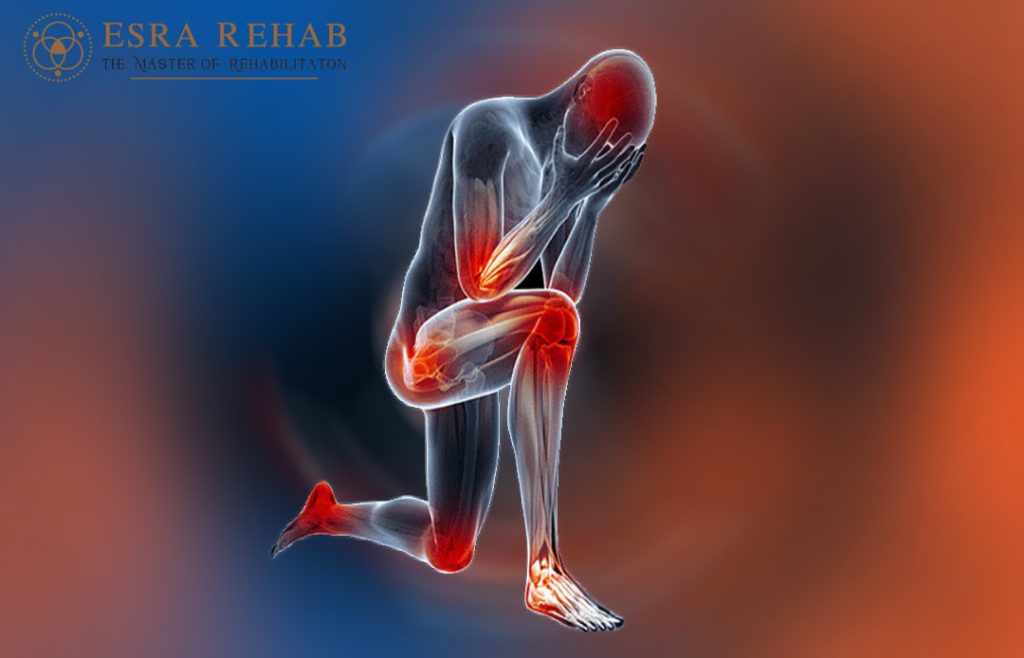| Outline | Sub-Headings |
|---|---|
| Introduction | Understanding Physiotherapy and Rheumatoid Arthritis |
| Benefits of Physiotherapy | Pain Management Techniques |
| Role of Exercise | Occupational Therapy |
| Lifestyle Adjustments | Diet and Nutrition |
| Understanding RA | Symptoms and Diagnosis |
| Treatment Options | Medications and Therapies |
| Managing Daily Life | Coping Strategies |
| Support Networks | Family and Community Support |
| Physiotherapy Techniques | Exercises for Rheumatoid Arthritis |
| Importance of Physiotherapy | Joint Mobility and Flexibility |
| FAQs | Common Queries About Physiotherapy and Rheumatoid Arthritis |
| Conclusion | Embracing a Holistic Approach |
Introduction
Physiotherapy and Rheumatoid Arthritis (RA) constitute a significant aspect of managing chronic conditions affecting joints and mobility. This comprehensive guide delves into the realms of physiotherapy’s role in mitigating RA symptoms, encompassing various dimensions from exercise routines to lifestyle adjustments.
Living with Rheumatoid Arthritis (RA) can pose challenges, affecting mobility and causing pain. At ESRA REHAB, we understand the complexities of RA and offer specialized physiotherapy to alleviate discomfort and enhance mobility.
Our Approach:
- Tailored Treatment: Our physiotherapy focuses on personalized plans addressing joint mobility, strengthening exercises, and pain relief techniques specific to managing RA.
- Enhancing Functionality: We aim to improve joint flexibility, muscle strength, and overall function to help you maintain an active lifestyle.
Why Choose ESRA REHAB?
- Expert Guidance: Our experienced physiotherapists are well-versed in managing RA, providing compassionate care and support throughout your rehabilitation journey.
- Holistic Care: We offer a holistic approach, integrating various techniques to address pain, improve mobility, and enhance your quality of life.
If Rheumatoid Arthritis affects your daily life, our specialized physiotherapy services at ESRA REHAB can help manage pain and improve mobility. Contact us today to embark on your journey towards better joint health.
Understanding Physiotherapy and Rheumatoid Arthritis
Physiotherapy in RA involves tailored approaches to alleviate pain, enhance mobility, and improve the overall quality of life for individuals. This section unravels the interplay between physiotherapy techniques and managing RA.
Physiotherapy techniques play a pivotal role in mitigating the impact of RA on joint health. The amalgamation of exercises, manual therapy, and other modalities can significantly alleviate pain, enhance joint flexibility, and bolster strength.
Benefits of Physiotherapy
Physiotherapy not only aids in pain management but also focuses on exercises, occupational therapy, and lifestyle adjustments crucial for managing RA. It offers a multidimensional approach to improve mobility and enhance the overall well-being of individuals grappling with RA. First, let us see what is the essence of this condition:
Symptoms and Diagnosis
Rheumatoid Arthritis (RA) manifests in various ways, often causing joint pain, stiffness, and swelling. It’s commonly symmetrical, affecting the same joints on both sides of the body. Symptoms might include fatigue, fever, and loss of appetite. Diagnosis involves a thorough examination, blood tests, imaging scans like X-rays or MRIs, and evaluation of symptoms.
Treatment Options
Treatment for RA aims to manage symptoms, slow the disease progression, and prevent joint damage. Medications like DMARDs (Disease-Modifying Antirheumatic Drugs) or biologics, pain relievers, and anti-inflammatories are often prescribed. Physical therapy and lifestyle adjustments also play a significant role in treatment.
Managing Daily Life
RA impacts daily life, but certain strategies can help. Balancing rest and activity, using assistive devices, practicing joint protection techniques, and maintaining a healthy lifestyle with exercise and a balanced diet are key. Support networks, including family, friends, and support groups, are crucial for emotional and practical assistance.
Understanding the nuances of RA, including its symptoms, diagnosis, treatment options, and daily life management, forms the bedrock of effective physiotherapy interventions.
Physiotherapy Techniques for RA
Importance of Physiotherapy
Exercises for Rheumatoid Arthritis
Elucidating the pivotal role of physiotherapy, especially the specific exercises tailored for RA, is instrumental in mitigating the impact on joint mobility and flexibility.
FAQs
How does physiotherapy alleviate RA symptoms?
Physiotherapy employs various techniques to alleviate Rheumatoid Arthritis (RA) symptoms. Through exercises tailored to improve joint flexibility, reduce stiffness, and strengthen muscles around affected joints, physiotherapy enhances mobility, mitigates pain, and aids in maintaining or improving overall functionality. Additionally, manual therapies and assistive devices recommended by physiotherapists help in reducing inflammation, easing discomfort, and enhancing joint movement, contributing to symptom relief in RA.
What exercises are beneficial for RA patients?
Several exercises are beneficial for RA patients, focusing on improving joint flexibility, strengthening muscles, and enhancing overall well-being. Range-of-motion exercises such as stretching routines, yoga, and tai chi can help maintain joint flexibility. Low-impact aerobic exercises like swimming or cycling are gentle on the joints while boosting cardiovascular health. Strengthening exercises, including light weights or resistance bands, aid in strengthening muscles around the joints without causing excess stress.
Are there specific lifestyle adjustments to alleviate RA discomfort?
Yes, certain lifestyle adjustments can help alleviate discomfort associated with RA. Maintaining a healthy weight reduces stress on joints. Balancing rest and activity is crucial; incorporating regular breaks during activities can prevent joint strain. Ergonomic adjustments at home or work, like using supportive chairs or adaptive tools, can reduce joint stress. Adopting stress-reduction techniques and ensuring adequate sleep also play significant roles in managing discomfort.
How crucial is the role of family support in managing RA?
Family support is invaluable in managing RA. Emotional support from family members fosters a positive outlook and helps individuals cope with the challenges of RA. Practical support in daily activities, especially during flare-ups or periods of increased symptoms, eases the burden on the affected individual. Supportive family environments create a conducive atmosphere for adhering to treatment plans, maintaining a healthy lifestyle, and seeking necessary medical care.
Can physiotherapy completely cure RA?
Physiotherapy doesn’t offer a cure for Rheumatoid Arthritis. However, it plays a crucial role in managing symptoms, improving joint function, and enhancing overall quality of life for individuals with RA. It focuses on symptom alleviation, pain management, and improving mobility rather than providing a complete cure for the condition.
What is the significance of diet in RA management?
While diet alone cannot cure RA, it can influence symptom management and overall health. Some dietary adjustments may help in managing RA symptoms. Incorporating anti-inflammatory foods such as fatty fish rich in omega-3 fatty acids, fruits, vegetables, nuts, and seeds might help reduce inflammation. Avoiding foods that might trigger inflammation or exacerbate symptoms, like processed foods, excessive red meat, and sugary items, could also be beneficial. Consulting a healthcare professional or a registered dietitian for personalized dietary recommendations is advisable.
Conclusion
The synergy between physiotherapy and managing Rheumatoid Arthritis provides a holistic approach, empowering individuals to embrace life despite the challenges posed by this condition. Integrating physiotherapy into the routine fosters resilience and an improved quality of life for those navigating the labyrinth of RA.



